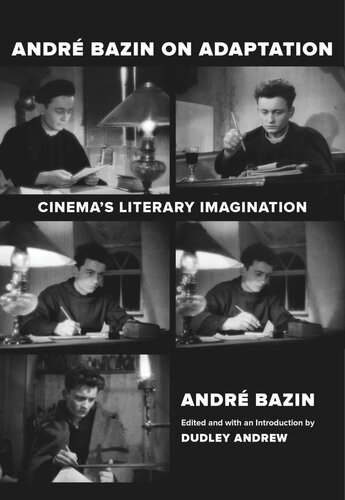

Most ebook files are in PDF format, so you can easily read them using various software such as Foxit Reader or directly on the Google Chrome browser.
Some ebook files are released by publishers in other formats such as .awz, .mobi, .epub, .fb2, etc. You may need to install specific software to read these formats on mobile/PC, such as Calibre.
Please read the tutorial at this link: https://ebookbell.com/faq
We offer FREE conversion to the popular formats you request; however, this may take some time. Therefore, right after payment, please email us, and we will try to provide the service as quickly as possible.
For some exceptional file formats or broken links (if any), please refrain from opening any disputes. Instead, email us first, and we will try to assist within a maximum of 6 hours.
EbookBell Team

0.0
0 reviewsAdaptation was central to André Bazin’s lifelong query: What is cinema? Placing films alongside literature allowed him to identify the aesthetic and sociological distinctiveness of each medium. More importantly, it helped him wage his campaign for a modern conception of cinema, one that owed a great deal to developments in the novel. The critical genius of one of the greatest film and cultural critics of the twentieth century is on full display in this collection, in which readers are introduced to Bazin's foundational concepts of the relationship between film and literary adaptation. Expertly curated and with an introduction by celebrated film scholar Dudley Andrew, the book begins with a selection of essays that show Bazin’s film theory in action, followed by reviews of films adapted from renowned novels of the day (Conrad, Hemingway, Steinbeck, Colette, Sagan, Duras, and others) as well as classic novels of the nineteenth century (Bronte, Melville, Tolstoy, Balzac, Hugo, Zola, Stendhal, and more). As a bonus, two hundred and fifty years of French fiction are put into play as Bazin assesses adaptation after adaptation to determine what is at stake for culture, for literature, and especially for cinema. This volume will be an indispensable resource for anyone interested in literary adaptation, authorship, classical film theory, French film history, and André Bazin’s criticism.